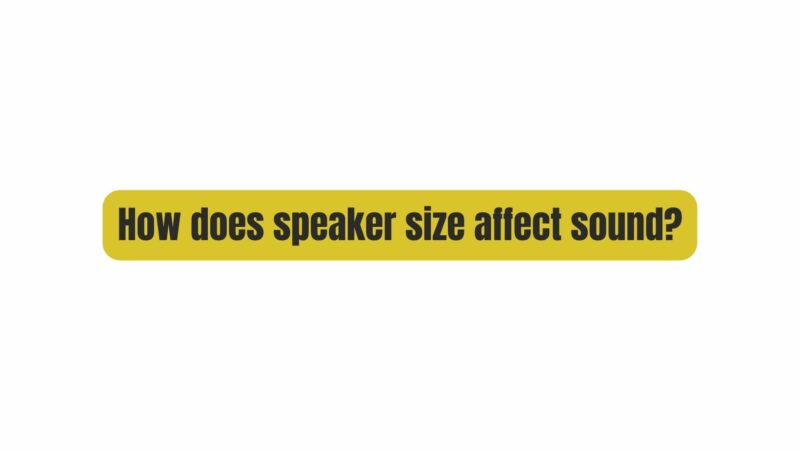The size of a speaker affects the sound it produces in a number of ways.
- Bass response: Larger speakers can produce lower frequencies, or bass, than smaller speakers. This is because larger speakers have a larger surface area, which allows them to move more air.
- Sound pressure level: Larger speakers can produce louder sound than smaller speakers. This is because they can move more air, which creates more pressure.
- Frequency response: The frequency response of a speaker is the range of frequencies that it can reproduce. Larger speakers typically have a wider frequency response than smaller speakers. This means that they can reproduce a wider range of sounds, from low bass to high treble.
- Soundstage: The soundstage is the perceived location of the sound sources. Larger speakers can create a wider soundstage than smaller speakers. This is because they can produce sounds that seem to come from further away.
- Timbre: Timbre is the quality of a sound that allows us to distinguish between different instruments or voices. Larger speakers typically have a richer timbre than smaller speakers. This is because they can reproduce a wider range of frequencies and harmonics.
However, speaker size is not the only factor that affects sound quality. Other factors, such as the quality of the materials used, the design of the speaker, and the way it is driven, also play a role.
Ultimately, the best way to determine how speaker size affects sound is to listen to a few different models and see which one you prefer.
Here are some additional factors that affect sound quality:
- Cabinet design: The cabinet design can affect the sound quality of a speaker by affecting the way the sound waves are reflected and absorbed. A well-designed cabinet will help to reduce unwanted vibrations and resonance, which can improve the clarity of the sound.
- Crossover frequency: The crossover frequency is the frequency at which the high-frequency and low-frequency drivers in a speaker are separated. The crossover frequency affects the sound quality by determining how much of the sound is sent to each driver.
- Amplification: The amplifier is responsible for providing the power to the speakers. The quality of the amplifier can affect the sound quality by determining how much power is available to the speakers and how it is delivered.
When choosing speakers, it is important to consider all of these factors to ensure that you get the best possible sound quality for your needs.


